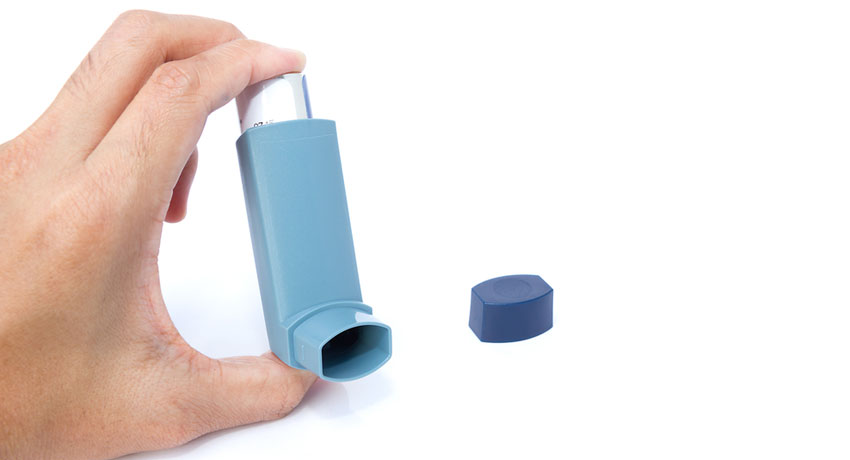Fungal Infections Can Trigger Asthma

Inhaler image via shutterstock
Researchers at Boston Children’s Hospital recently reported that fungal infections can cause and exacerbate asthma.
In the study, published in the journal Nature Medicine, scientists exposed lab mice to a mold found commonly both indoors and outdoors called Aspergillus fumigatus. The mice began to show the beginning signs of asthma within a few days. This process usually takes up to three weeks. These results seem to suggest that commonly found fungi can cause asthma, and cause it more quickly.
Asthma patients are usually treated with anti-allergy drugs such as inhaled corticosteroids. Previously, asthma was believed to be caused by allergens inhaled by patients. Traditional inhalers thereby target certain cells — called Th2 cells — in the immune system that are involved in allergic reactions. This fungus, it has now been confirmed, circumvents these Th2 cells and activates a newly discovered type of cell called natural killer T cells, or NKT. These NKT cells cause airway problems that lead to asthma that has nothing to do with allergies.
In light of these new findings, inhalers can no longer be relied upon as the blanket treatment plan for all asthma symptoms.
Senior investigator Dr. Dale Umetsu, from the Boston Children’s Division of Immunology and professor at Harvard Medical School, said in a press release:
“We need to understand the specific asthma pathways present in each individual with asthma and when they are triggered, so we can give the right treatment at the right time. As we understand the different pathways to asthma, we can develop better therapies”
Additionally, although Aspergillus fumigatus is a non-allergic cause of asthma, the study shows that asthma patients, over time, become allergic to the fungus which causes even more airway distress, this time through the allergy-related Th2 cells. This means that in addition to a fungus-caused type of asthma, these patients experience the allergy-related asthma symptoms as well.
Umetsu cited in the press release that some research groups are using anti-fungal medication and finding success. Researchers said that looking for NKT cells in asthma patients first will help give asthma patients the correct treatment they need.


